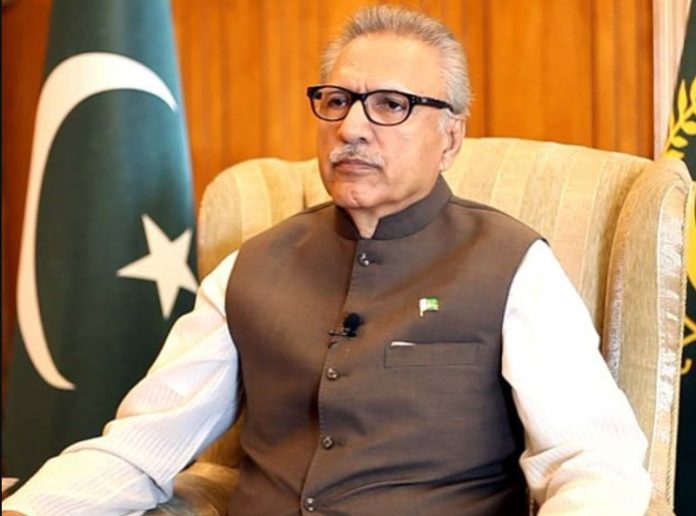Failure of Pakistan’s democratic processes has once again come to the fore as President Arif Alvi’s recent statement sheds light on the intricate power dynamics between the civilian leadership and the military establishment. The president’s revelation that he did not sign the Official Secrets (Amendment) Bill and the Pakistan Army (Amendment) Bill, which subsequently came into force, raises concerns about the extent of civilian authority in the country.
Pakistan President Arif Alvi took to the social media platform X, formerly known as Twitter, to express his disagreement with the two Bills and to assert that he did not sign them. His message reads, “As God is my witness, I did not sign Official Secrets Amendment Bill 2023 & Pakistan Army Amendment Bill 2023 as I disagreed with these laws.” Alvi went on to explain that he had instructed his staff to return the bills unsigned within the stipulated time to render them ineffective. He further revealed that he had confirmed multiple times with his staff whether the bills had been returned, and he was assured that they had.
However, it was subsequently discovered that the President’s instructions were not followed, and his staff had deliberately not returned the bill. The consequences of this unconstitutional act has now led to the bills taking effect. Under Pakistan’s constitution, if a bill is not returned within 10 days, it is considered passed, leaving room for concern regarding the adequacy of checks and balances within the legislative process.
What are Official Secrets (Amendment) And Pakistan Army (Amendment) Bills?
Under the Official Secret (Amendment) Bill 2023, the definitions of military instalments has been widened and the digital and modern means of communications have been brought under the ambit of law. This would eventually bring bloggers and bloggers under the ambit of law. The definition of “documents” has also been widened to include written, unwritten, electronic, digital and any other instrument related to military procurements and capabilities. Similarly, the definition of “enemy” has also been introduced, according to which- “Any person who is directly or indirectly, intentionally or unintentionally working for or engaged with a foreign power, foreign agent, non-state actor, organisation, entity, association or group guilty of a particular act… prejudicial to the safety and interest of Pakistan.”
Under the Pakistan Army (Amendment) Act 2023, more power has been accorded to the Army Chief while there are restrictions put on the ex-servicemen. The bill introduces Section 26-B, which forbids any person subject to Army act from engaging in any political activity for two years. Similarly, those who have been posted on the sensitive posts and locations are barred to take part in any political activity for five years from the date of his retirement, resignation, discharge or removal. Defying which could lead a person to a rigorous imprisonment of up to two years.
A clause introduced in Section 176-C gives power to the Amy chief to confer any oh his power to any officer subordinate to him. Under Section 176-E, it is provisioned that the laws under the act “shall have effect notwithstanding anything inconsistent contained in any other law, rules or regulations for the time being in force”, adding that any such inconsistent law shall, “to the extent of any inconsistency, cease to have effect”.
Pakistan, A Facade of Democracy
This recent episode is indicative of a broader issue in Pakistan’s political landscape, where the military establishment is the de facto ruler having full control and authority, while the civilian government is just a puppet in the hands of military. The president’s claim of being unable to exercise his prerogatives, despite holding the highest office in the country, underscores the longstanding military’s influence over the civilian leadership.
The Bills in question, which were first approved by the National Assembly and later passed by the Senate, have raised eyebrows for their controversial clauses. After criticism, some contentious provisions were removed, and the Bills were ultimately approved by the Senate before being sent to the president for his signature.
The subsequent turn of events, including the bills coming into force despite the president’s disagreement, points to deeper concerns about the degree of autonomy enjoyed by the civilian leadership in matters of policy and governance. The incident also carries implications for the transparency and accountability of Pakistan’s democratic institutions.
As this latest incident unfolds, critics argue that Pakistan’s democracy remains constrained by the military’s influence, casting doubts on the true extent of civilian governance and decision-making within the country. The situation has been further complicated by the arrest of former Foreign Minister Mahmood Qureshi, which has ignited discussions about the broader political landscape and the role of various stakeholders in shaping the nation’s trajectory.

